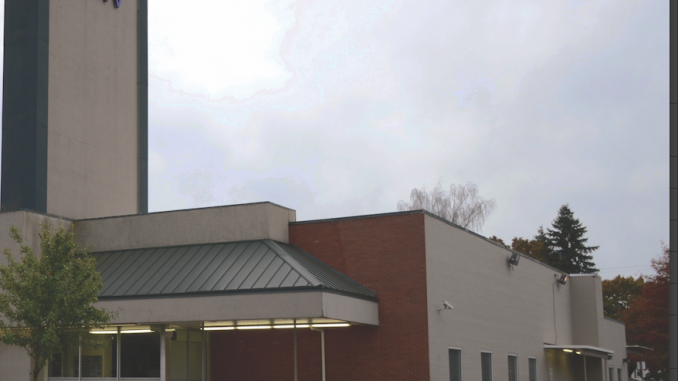
New York State is considering restoring equal access to driver’s licenses by passing legislation to expand access to the “Standard License.”
This legislation, S1747 or the “Green Light Bill,” would establish that the newly created “Standard License” be accessible to all state residents, regardless of immigration status.
There are currently 752,000 undocumented immigrant New Yorkers over the age of 16 who are barred from obtaining driver’s licenses due to their immigration status. Additionally, over 70,000 New Yorkers that currently have Temporary Protected Status (TPS) or Deferred Action for Childhood Arrivals (DACA) are at risk of losing their access to driver’s licenses.
Without access to licenses, immigrants are unable to register and insure their vehicles or obtain and carry valid identification. Unlicensed immigrants often risk driving when lacking reasonable public transportation alternatives to meet their basic daily needs such as school, worship and work.
Additionally, immigrants without valid identification or permission to drive fear minor interactions with police, such as a traffic violation, will put them at risk of arrest and deportation. This leads to avoiding police, even when they are a victim or witness of a crime.
Allowing access to licenses will likely improve trust between law enforcement and immigrant communities. With valid, legal identification, witnesses and victims of crimes may more readily report and cooperate with police. Police will be able to verify the identity of motorists and review their traffic records, allowing police to fulfill their duties more efficiently and effectively.
Ulster County Sheriff Juan Figeuroa expressed his support for the bill as a matter of public safety. The proposal also has the support of state Sen. Jen Metzger (D-Rosendale) and state Assemblyman Kevin Cahill (D-Kingston).
“Providing access to driver’s licenses for all qualified drivers, regardless of immigration status, is commonsense policy that’s been endorsed by public safety officials from around the country,” Figueroa said in a column submitted to The Daily Freeman.
New Paltz Police Lieutenant Robert Lucchesi said that the New Paltz Town Police Department supports the proposal as well and believes it will improve public safety.
“[With driver’s licenses, immigrants] can then apply for insurance, they have a valid form of recognizable identification. It would improve job opportunities, it would improve their ability to contribute to the community that they live in,” Lucchesi said. “We don’t know where this would not improve safety for the public. What is proposed I think is really beneficial for the public at large.”
The existence of standard driver’s licenses would also potentially strengthen and grow New York’s economy. New York State and County governments would receive an estimated $57 million in combined annual revenue and $26 million in one-time revenue through taxes and fees, according to the Fiscal Policy Institute. Licensing undocumented immigrant drivers would also help lower insurance premiums for all residents, by an estimate of $17 per person each year.
Town Council and Village Board of New Paltz recently approved a resolution calling on the New York State Legislature to move forward with the bill. Deputy Mayor KT Tobin said that its passage will make our state and its communities safer and more prosperous.
“There is a moral imperative to protect our immigrant communities that is aligned with the tradition and history of our community… where 17th century refugees put down roots after fleeing discrimination and persecution,” Tobin said. “This is the same New Paltz that has recently come together more to support immigrants being unjustly detained by ICE, reflecting the value we place on all residents and their contributions.”
The legislation prohibits discrimination against the holder of a standard license and incorporates privacy protections to limit unfettered data searches by the federal government. Possession of a standard driver’s license may not be used as evidence of citizenship or immigration status and Immigration and Customs Enforcement will need an individual judicial warrant to access information held by the DMV.
Furthermore, documents used to determine eligibility will not be retained and immigration status will not be recorded. The DMV cannot keep records showing whether a person has a standard license or federal purpose license and will not be public record. Data requests will require individual consent or a judicial warrant before disclosure and if a request for data is made in bad faith, the Commissioner can deny it.
The REAL ID Act was passed by Congress in 2005 and is scheduled to be fully implemented by Oct. 2020. This act establishes minimum security standards for state-issued driver’s licenses, permits and ID cards in order for the cards to be used for any federal purposes. States can, however, create a multi-tiered system, which can include offering cards to be used for both federal and state purposes and cards that can only be used for state purposes if they do not meet the Act’s stringent requirements.
Twelve states, Washington D.C. and Puerto Rico currently have access to licenses for undocumented immigrants; three of the locations are also REAL ID compliant: Vermont, Connecticut and Washington, D.C. Licensing undocumented immigrant drivers ensures that they can be properly licensed, informed of traffic laws, pass a driving test and operate a registered, inspected and insured vehicle. Since New Mexico changed its policy in 2003, the State’s rate of uninsured motorists fell from 33 percent to under nine percent.
In the fall of 2017, the New York State DMV released its plan to be REAL ID compliant. The DMV will now offer three separate options for New Yorkers in need of a driver’s license in state. These include an Enhanced License (which currently exists), a new REAL ID license that can be used for both federal and state purposes and a new standard license not for federal purposes.
REAL ID and enhanced licenses will require an office visit to prove one’s identity, state residency, lawful presence in the U.S. and social security status. A standard license will not require an office visit to replace or renew and has “NOT FOR FEDERAL PURPOSES” displayed on the document if issued after Oct. 30, 2017.
